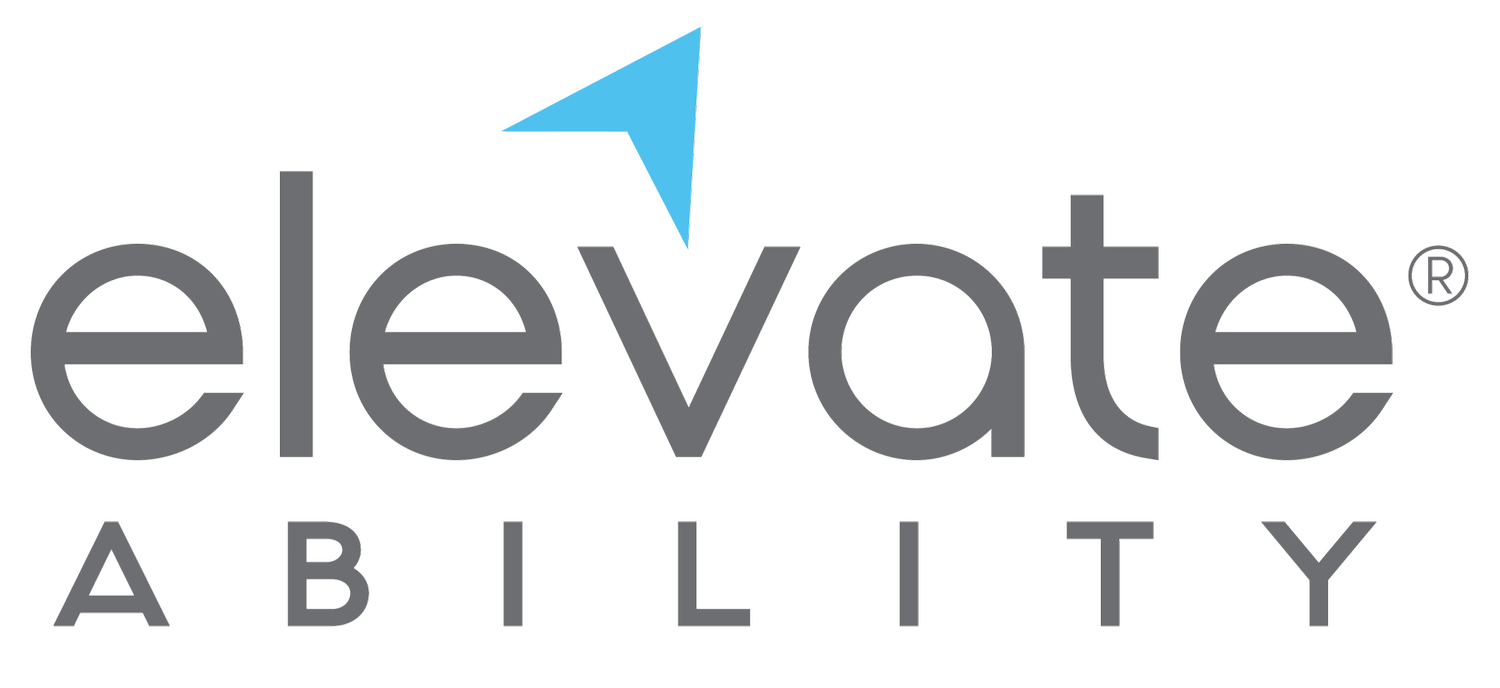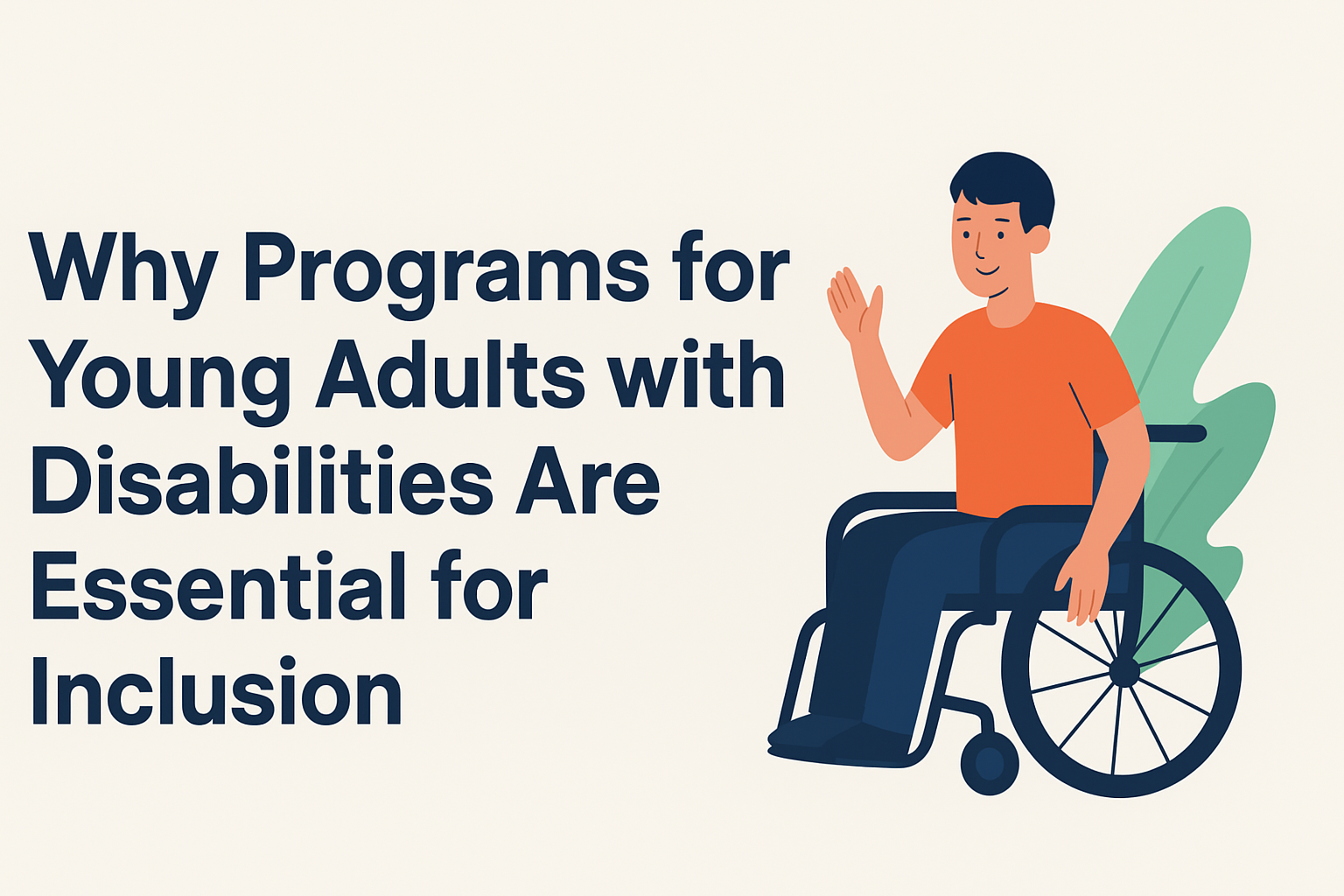Why Programs for Young Adults with Disabilities Are Essential for Inclusion
Creating a society where everyone feels valued and included is an ongoing journey. For many families, one of the most important parts of this journey is ensuring that young adults with disabilities have the same opportunities to grow and succeed as their peers. As they move from adolescence into adulthood, they often face unique challenges in education, employment, and daily living.
To bridge these gaps, programs for young adults with disabilities provide crucial support. These initiatives focus on building independence, promoting social interaction, and unlocking opportunities that encourage long-term success. By emphasizing abilities rather than limitations, such programs foster both inclusion and empowerment, allowing special young adults to lead fulfilling lives.
Understand the Needs of Special Young Adults
As young adults step into adulthood, they encounter new responsibilities and expectations. For special young adults, these transitions can be more complex because of barriers in education, employment, and daily living. In education, they may struggle with limited access to inclusive learning environments or individualized resources that match their pace and style of learning. Employment opportunities are also harder to secure, with workplaces often lacking the accommodations or training programs necessary to support their success.
Daily living presents its own set of challenges. Tasks such as managing finances, navigating transportation, or maintaining personal routines can feel overwhelming without the right guidance. These challenges, if unaddressed, can limit opportunities for independence and personal growth.
This is where tailored support makes a difference. Programs designed for special young adults focus on meeting individual needs through life skills training, mentorship, or job coaching so they can thrive on equal footing with their peers. By providing accessible pathways and customized resources, these programs ensure that every young adult has the chance to achieve independence and lead a fulfilling life.
The Role of Programs to Help Young Adults Achieve Independence
Programs to help young adults are designed to strengthen essential life skills and prepare them for the responsibilities of adulthood. For young adults with disabilities, these programs focus on building confidence, developing self-reliance, and improving adaptability so they can participate fully in society.
Building Confidence
Programs encourage young adults to engage in decision-making, explore their talents, and take part in activities that highlight their abilities. This helps them believe in their strengths and gives them the courage to set and achieve personal goals.Developing Self-Reliance
Training in practical areas such as time management, financial planning, and daily living tasks allows young adults to handle responsibilities with less dependence on family or caregivers. Gaining these skills gives them the foundation to live more independently.Promoting Adaptability
Programs focus on helping young adults adjust to new environments and challenges, whether in education, employment, or community life. By learning to adapt, they build resilience and confidence to face real-world situations.Vocational Training
These programs provide job-specific skills and workplace experience that improve employment opportunities. Vocational training also gives young adults a sense of purpose and independence through meaningful work.Mentorship
Having a mentor offers guidance, encouragement, and practical advice. Mentorship programs help young adults stay motivated, set goals, and navigate the transition into adulthood with confidence.Peer Support Networks
Connecting with peers who share similar experiences helps young adults build friendships and learn from one another. These networks provide both emotional support and opportunities for social growth, which are essential for independence.
Together, these initiatives prepare young adults with disabilities to lead fulfilling lives, achieve independence, and contribute positively to their communities.
Independent Living for Young Adults with Disabilities
Independent living for young adults with disabilities is an important step toward adulthood and self-sufficiency. With the right programs, young adults can gain the skills and confidence to take charge of their own lives, while still having access to the support they need.
Managing Housing
Independent living programs teach young adults how to find and maintain safe housing. They cover essential skills such as understanding leases, managing utilities, and creating a comfortable living space that meets individual needs.Handling Finances
Financial literacy is a major focus, with programs guiding participants on budgeting, saving, paying bills, and making responsible spending choices. These skills empower young adults to build stability and reduce dependence on others.Maintaining Daily Routines
Programs also emphasize personal care, meal preparation, and time management. Learning to manage these everyday tasks builds confidence and helps create a sense of control over one’s life.Community Housing Options
Many programs offer community housing, where young adults live with peers in supportive environments. These settings encourage social interaction, cooperation, and shared responsibility while still promoting independence.Supportive Living Arrangements
For those who need additional assistance, supportive living arrangements provide access to caregivers, mentors, or staff who can help with specific tasks. This balance of independence and guidance ensures that young adults can grow at their own pace while remaining safe and supported.
Through these opportunities, independent living programs for young adults with disabilities foster self-confidence and prepare them for long-term success in both personal and professional life.
Life Skills Programs for Young Adults with Disabilities
Life skills programs for young adults with disabilities are designed to prepare them for the practical responsibilities of everyday life. These programs go beyond academics or vocational training by focusing on the essential abilities needed to live independently and confidently.
Cooking and Nutrition
Learning how to cook healthy meals and understand nutrition helps young adults take care of their own well-being. These programs teach meal planning, grocery shopping, and safe food preparation, which are critical for daily living.Transportation Skills
Being able to travel safely and independently is a key part of adult life. Life skills programs often provide training in using public transportation, reading schedules, and navigating different routes, as well as understanding personal safety while traveling.Personal Care and Hygiene
Programs emphasize the importance of self-care, including grooming, hygiene, and health management. By developing these skills, young adults gain the confidence to maintain their independence and dignity.Preparing for Real-World Independence
Beyond individual tasks, these programs build responsibility, problem-solving skills, and decision-making abilities. They prepare young adults to handle unexpected situations, adapt to challenges, and manage their daily routines effectively.
Through these opportunities, life skills programs for young adults with disabilities create a strong foundation for self-reliance and long-term independence. They not only improve the quality of life but also give young adults the confidence to participate fully in their communities.
Specialized Programs for Special Needs Young Adults
Programs for special needs young adults are designed with individualized support to meet both educational and social development goals. These programs recognize that every young adult learns differently and requires personalized strategies to succeed academically, socially, and emotionally.
Individualized Educational Support
Specialized programs focus on tailoring learning approaches to meet the unique needs of each participant. This can include one-on-one tutoring, modified coursework, or assistive technology that enhances the learning experience and makes education more accessible.Social Interaction Opportunities
Social development is an essential part of growing into adulthood. These programs provide structured activities that encourage communication, teamwork, and relationship building, helping young adults improve their confidence and social skills.Recreational Activities
Recreational programs such as sports, arts, and music create enjoyable ways for young adults to express themselves. They promote inclusion by offering shared experiences with peers and encourage creativity, teamwork, and fun in a supportive environment.Community-Based Programs
Community involvement allows young adults to connect with others outside their immediate circles. Volunteer opportunities, local clubs, and group events provide meaningful engagement and foster a stronger sense of belonging within society.
By combining educational support, social interaction, and recreational opportunities, programs for special needs young adults create well-rounded experiences that promote inclusion and prepare them for greater independence.
Why Inclusion Matters in Every Program
Inclusion is more than just offering support; it is about ensuring that young adults with disabilities are fully integrated into every aspect of life. Inclusive program design not only benefits the individual but also strengthens families and enriches entire communities.
Benefits for Young Adults with Disabilities
Inclusive programs provide equal access to education, training, and social opportunities. This allows young adults to develop essential skills, gain confidence, and feel valued as contributing members of society.Support for Families
Families benefit when inclusive programs are available because they offer reassurance that their loved ones are receiving the tools and guidance needed for independence. These programs also reduce caregiver stress by sharing responsibilities through structured support.Strengthening Communities
Inclusion fosters diverse and welcoming communities. When young adults with disabilities participate in education, work, and recreational activities, society as a whole becomes more understanding, empathetic, and united.Path to Long-Term Independent Living
Inclusive programs create a foundation for long-term success by teaching self-reliance and adaptability. Young adults who grow up in inclusive environments are better prepared for independent living, employment, and active participation in community life.
By focusing on inclusion, programs ensure that young adults with disabilities are not left on the margins but are empowered to build fulfilling lives while making meaningful contributions to society.
How to Choose the Right Program for Adults with Special Needs
Selecting the right program is one of the most important decisions families and caregivers can make for young adults with disabilities. The right choice can determine how well they adapt to independent living, develop life skills, and achieve long-term success.
Assess Individual Needs
Every young adult has unique strengths, challenges, and goals. Families should look for programs that provide personalized plans tailored to the individual’s abilities and future aspirations rather than a one-size-fits-all approach.Evaluate Program Accessibility
Accessibility goes beyond physical spaces. Families should ensure that the program offers adaptive resources, supportive staff, and clear communication methods that allow participants to thrive in learning and social environments.Review Independent Living Components
For those preparing for greater independence, families should check whether the program covers essential skills like housing management, financial literacy, personal care, and daily routines. These elements are crucial in independent living programs for young adults with disabilities.Look for Strong Life Skills Training
Programs that emphasize cooking, transportation, hygiene, and decision-making are particularly valuable. These skills form the foundation for independence and reduce reliance on caregivers.Consider Community and Social Integration
The best programs encourage participation in community activities and provide opportunities to build social networks. This not only reduces isolation but also supports inclusion and belonging.Check Long-Term Support
Families should choose programs that offer ongoing guidance, mentorship, or follow-up services to ensure continued growth and adjustment as the young adult’s needs evolve.
By prioritizing personalization, accessibility, and long-term development, families can find programs that truly empower young adults with disabilities to lead confident and independent lives.
Conclusion
Programs for young adults with disabilities are not just support systems; they are pathways to independence, confidence, and meaningful inclusion. By focusing on education, life skills, vocational training, and social development, these programs help young adults overcome challenges and embrace opportunities that lead to fulfilling lives. They also strengthen families and communities by fostering understanding, compassion, and shared growth.
Families and caregivers play a vital role in this journey. Exploring available programs, asking the right questions, and advocating for inclusive initiatives can make a lasting difference. With the right support, every young adult can reach their potential and contribute positively to society.
Now is the time to take action, seek out programs that empower, advocate for more inclusive opportunities, and help create a future where all young adults, regardless of ability, can thrive.

